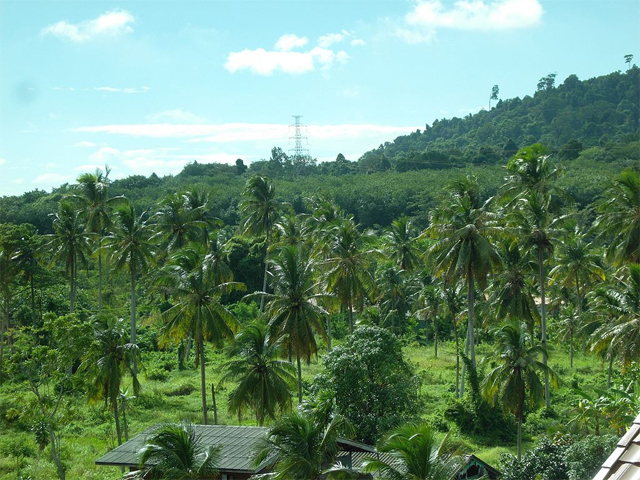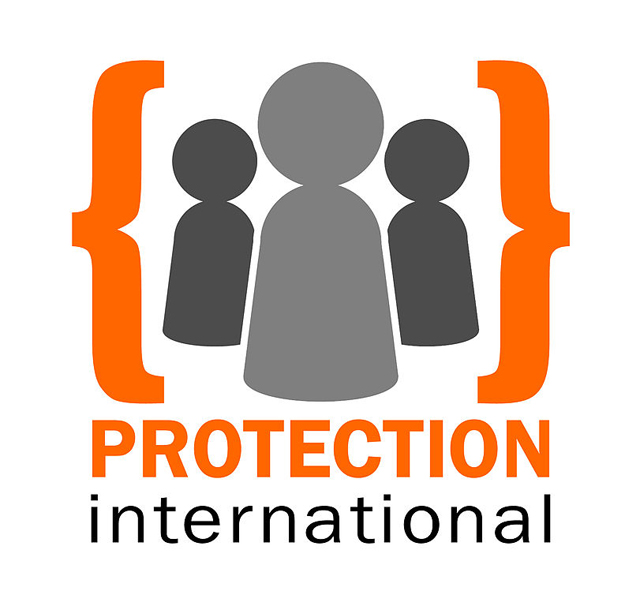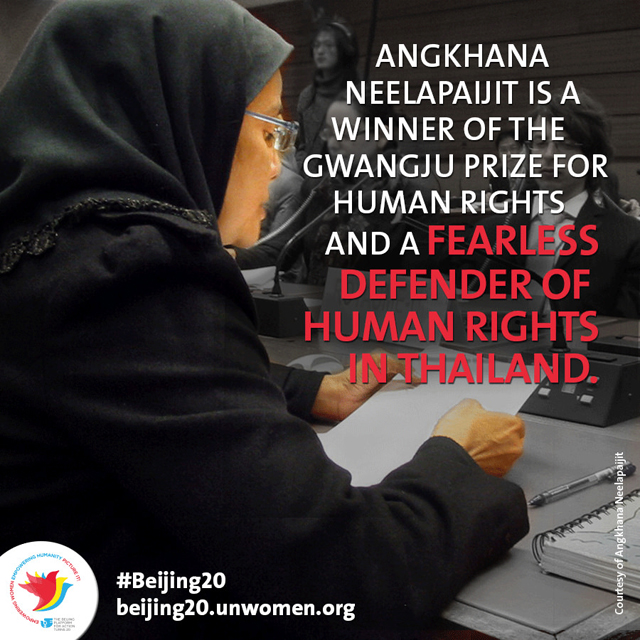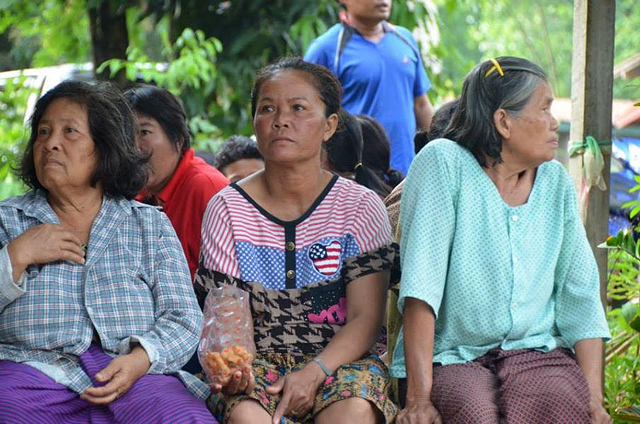A feature in Geographical magazine on January 2 analyzed the reasons for Rural Thai women taking increasingly important roles in environmental protest movements in their country. Their activism is having an impact on thwarting some developments, but at a considerable personal cost, the article explains.

The lengthy article goes into detail about the roles that women are playing in several different local issues around the nation. For instance, two women activists were found murdered in broad daylight next to an illegal palm oil plantation in southern Thailand on November 12, 2012. The two women—Montha Chukaew, 54, and Pranee Boonrat, 50—had been leading a fight in Surat Thani province against the palm oil firm, Jiew Kang Pattana Co.
The company had illegally acquired a 535-acre tract of land and had been harvesting palm oil from the plantation on it for decades until a local farm cooperative, the Southern Peasant’s Federation of Thailand, began to investigate. That group took its case to a government agency which sued the company in 2005 for land encroachment and illegal trespass. The agency won its suit in court and some local farm families were resettled on a hill within the disputed tract. However, when the peasants tried to start using their small plots of land, the company responded with violence. Between 2010 and 2016, at least five people have been murdered, but the double assassination of the two women leaders particularly stirred the people with fear—and with a determination to continue their struggle for justice.

A representative from an NGO called Protection International told Geographical magazine that the organization had recorded over 500 incidents of violent actions being taken in Thailand between 2011 and 2016 against defenders of the rural environment. The organization said that 51 land rights and environmental activists had been murdered in the past 20 years. The corporate attacks on rural communities have focused not only on the activists themselves but also on intimidating their families. Those attacks and threats on families have stirred the rural women into taking leading roles in the protests.
Janya Ruangthong, a 36-year old Muslim woman from the affected community in southern Thailand, has assumed such a role by preparing legal documents for court hearings. She told Geographical that, in her opinion, the growth in the involvement of women in the environmental movement is helping to reduce the extent of violence in the protests. “Our community has women as front-line leaders, presenting letters to the state or demanding changes,” she said. “Having women as leaders in a protest can help prevent acts of violence.”
Other groups in Rural Thailand are experiencing the same thing. When citizens mount public protests to air their grievances, the women are often standing in the front ranks. This completely changes the dynamics between the police or armed forces and the protesters they are confronting. The presence of women forming a barrier between the male protesters and the male officers or soldiers helps to pacify the actions that ensue. Security personal tend to be much more cautious in their responses.

Angkhana Neelapaijit, the Commissioner for the National Human Rights Commission of Thailand, a government body, agreed with that assessment. She said that during various protests, “women are used as a human wall.” She has her own personal history of abuse: in 2004, her husband was involved in protests against torture by state security forces in southern Thailand. He was abducted from a street in Bangkok and has never been seen again.
The Geographical article discusses a protest movement in Northeast Thailand, in the province of Loei, where a village environmental group is confronting a gold mining company that, the villagers claim, is poisoning their lands with chemicals such as cyanide and arsenic. The Tungkum mining company, they say, also has a poor safety record. So the villagers erected roadblocks to deny access to the mine but the company, in May 2014, sent a group of 300 masked men, carrying sticks, knives, and guns, to rush into the village, beat up the men and women defenders, take down the roadblocks, and retrieve their gold. Many of the villagers were injured in the melee.

Over one-third of the 200 members of the local group opposing the mine are women. Led by a 46-year old woman, Pornthip Hongchai, about 100 people, including a dozen men bringing up the rear, went into the Loei City Hall to present a petition opposing a proposed revision to the Mining Act that would have made it easier for mining companies to obtain permits in environmentally sensitive places.
Hongchai has had numerous threats made against her during her years of leading protests. The family’s business has suffered and their debts are mounting since they have had to spend so much of their time opposing the mine. But she defends the strategic decisions of her group to keep putting women in the front lines of protests: “It reduces tensions,” she says.
However, the presence of women on the front lines of protests has not, at least yet, decreased the extent of gender-based discrimination in Thailand. Hongchai said to the magazine, “A government official told me directly ‘Don’t be overwhelmed thinking that you are smart. You are still a woman.’”